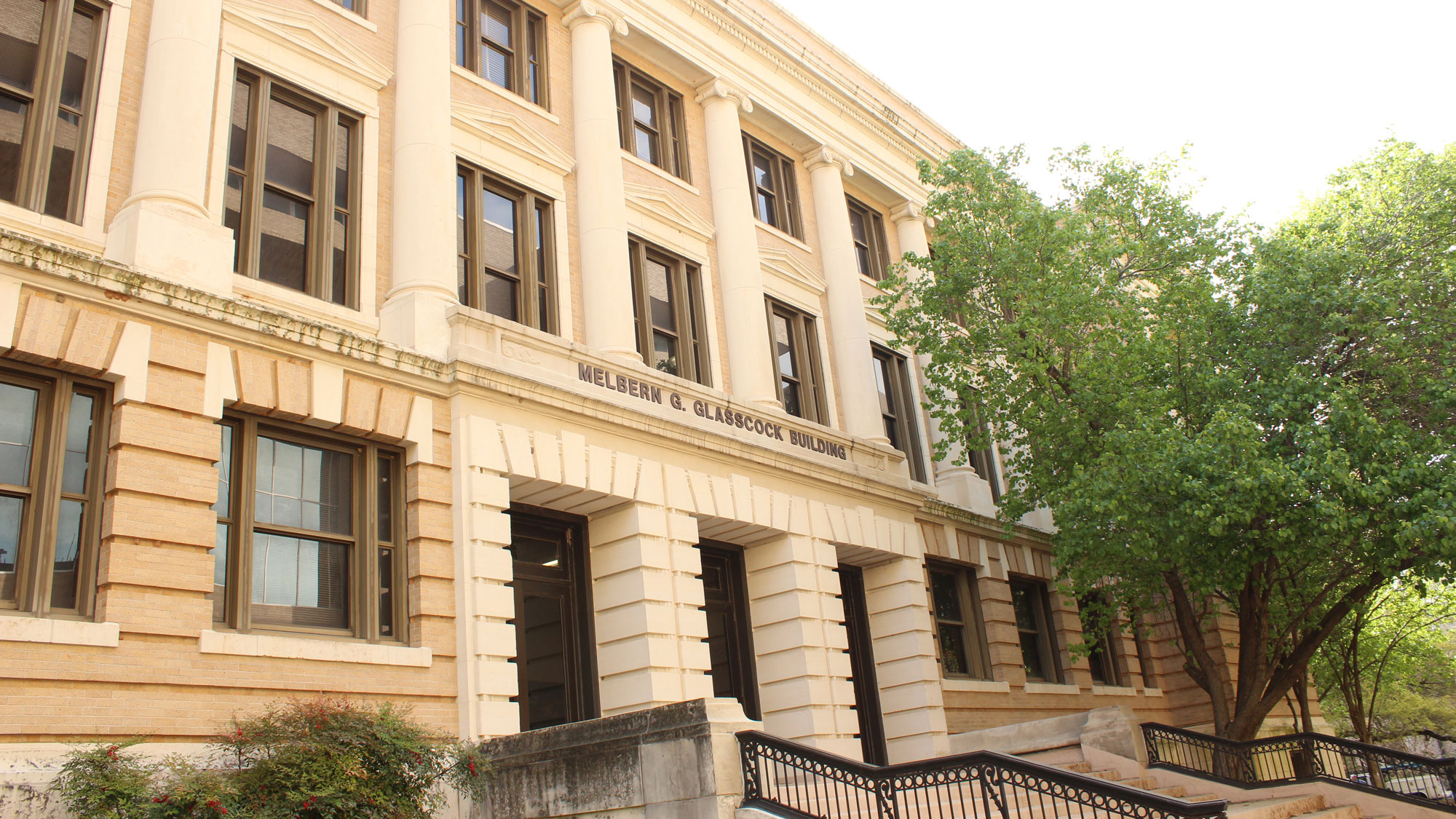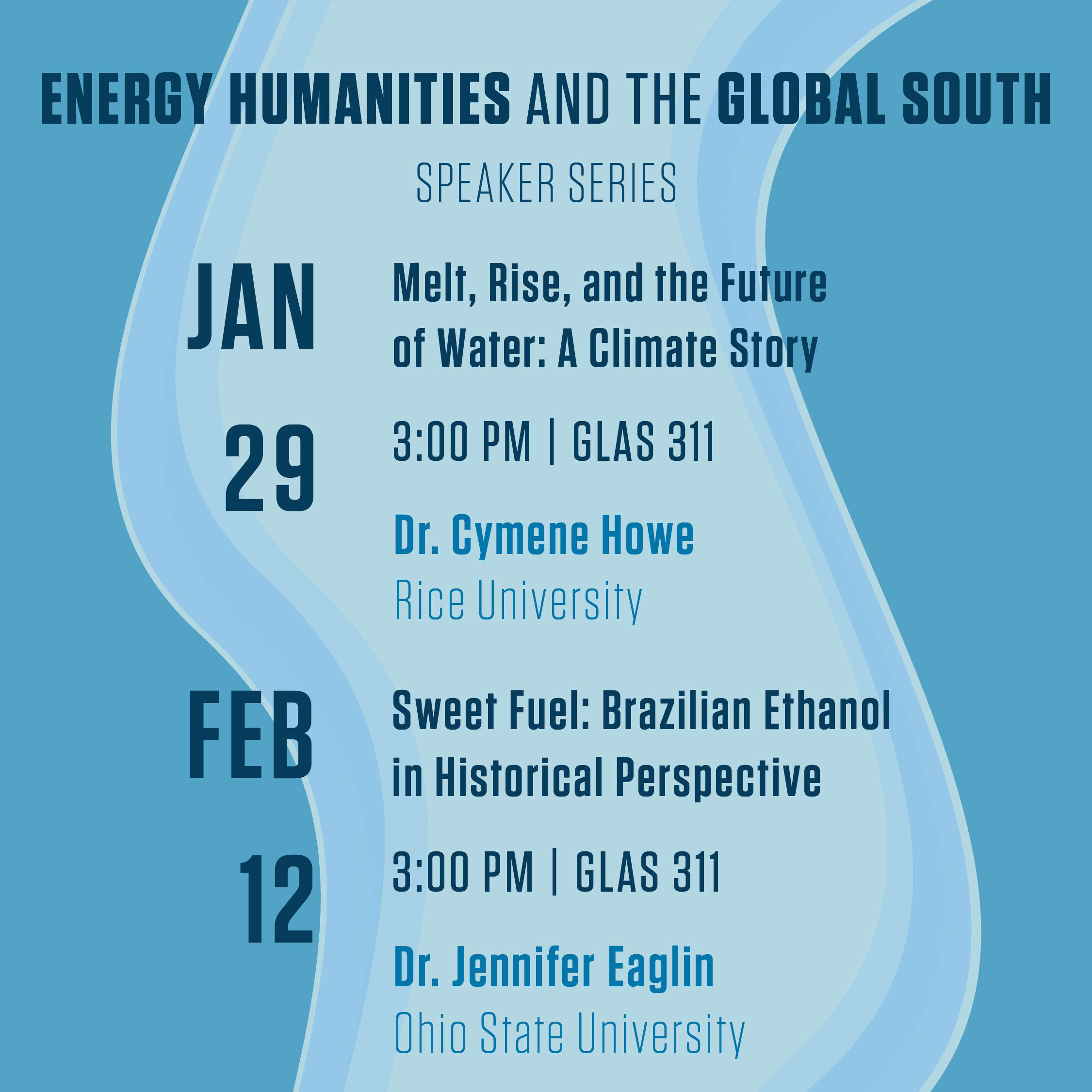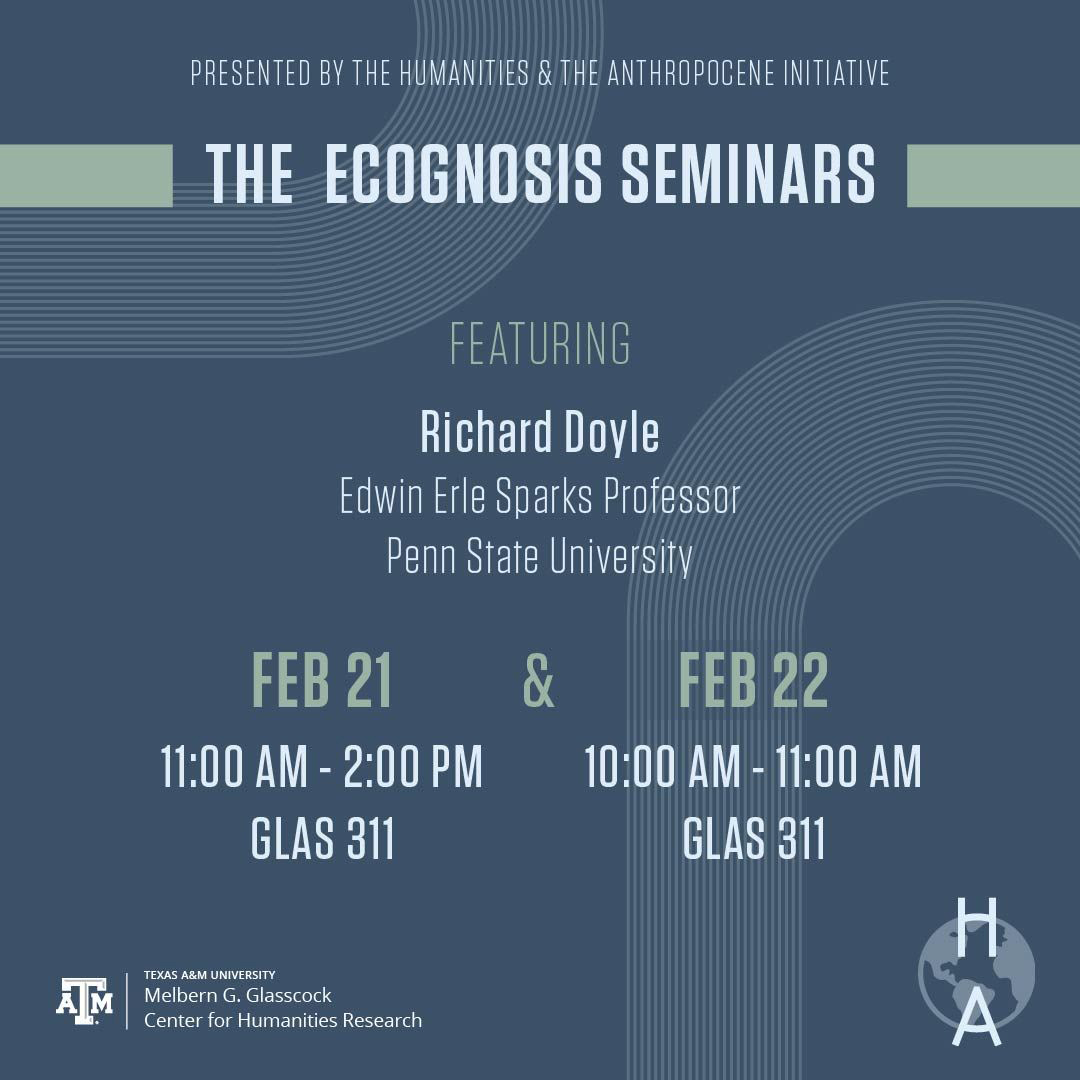
Texas A&M University’s College of Arts and Sciences is home to dozens of centers and institutes, each one focusing on furthering the study of unique and important topics. Take, for instance, the Melbern G. Glasscock Center for Humanities Research, which is “dedicated to fostering and celebrating the humanities and humanities research among the community of scholars at Texas A&M University and in the world beyond the academy.”
In pursuit of that mission, the Glasscock Center is gearing up this spring to host multiple programs and activities aimed at exploring the intersection of humanities and climate issues.
“I’d like to see the Glasscock Center be the leader in humanities research,” said Glasscock Center Director Dr. Troy Bickham, a professor in the Department of History. “We bring a conversation space for the humanities for faculty, students and members of the community to come together and discuss issues from the past, present and future. What I’d like to see more of are people who are not necessarily part of the humanities taking advantage of our existence to experience a humanistic way of looking at things and inform them as they contemplate various issues.”
The first presentation of the year occurred on January 29 and featured Dr. Cymene Howe, professor of anthropology and founding co-director of the Science and Technology Studies Program at Rice University. Howe’s lecture, “Melt, Rise and the Future of Water: A Climate Story,” explored the issues of melting ice sheets and rising sea levels through a cultural anthropology lens that considers “the unfolding connections between the melting Arctic and coastal cities facing sea level rise flowing from the (once) frozen north.”

Howe lectured about how different cultures experience and address climate issues. For example, Howe shared how Iceland’s glacier Okjökull, declared dead in 2014, affected the local community, which had held a funeral and installed a commemorative plaque on August 18, 2019. Howe then presented work by indigenous poets Aka Niviâna and Kathy Jetñil-Kijiner, who also document the “deaths” of glaciers in their communities. Howe then connected the Icelandic glacier melting to rising waters in Cape Town, South Africa, leading to discussions on how melting ice in one location on Earth can mean rising sea levels in another part of the world.
“When Greenland melts, Honolulu will be affected most,” Howe said.
Howe then explored how this research can inform people to act upon these issues. One term Howe introduced is “the world ocean,” a concept that sees all oceans as one body rather than four different oceans. Howe then introduced the concept of “hydrological globalization” that posits “how we are all connected though water.” Finally, Howe revealed a project titled “Sister Cities of the Anthropocene,” where cities will be paired based upon hydrological issues, borrowing inspiration from the Cold War-era Sister Cities program that sought to link cities around the world through shared interests, such as shared industries, cultures or business connections.
Howe’s lecture was part of a series within the Energy Humanities and the Global South research cluster at the Glasscock Center that “investigates the social, ideological, artistic, ecological, labor, gendered and racialized relations that are produced by, attach to and disrupt energy systems and infrastructures." The second lecture, “Sweet Fuel: Brazilian Ethanol in Historical Perspective” by Dr. Jennifer Eaglin, associate professor of environmental history and sustainability at The Ohio State University, occurred on Feb. 12.

The Glasscock Center also hosts The Humanities and the Anthropocene: Life, Temporality, Extinction, a three-year initiative organized by Dr. Adam R. Rosenthal, Dr. Alberto Moreiras and Dr. Teresa Vilarós-Soler, who are all faculty members of the Department of Global Languages and Cultures. The initiative “aims to explore the global and local impacts of climate change, global warming and environmental degradation, for both complex biological systems and human notions of time and being.”
The first event of 2024 for this multi-year initiative will be The Ecognosis Seminars, three 55-minute sessions set for February 21 and 22 on the experience of “ecognosis” or “knowledge by identity with the ecosystemic scale beyond perception or conception.” These seminars feature Richard Doyle, Edwin Erle Sparks Professor of English at Pennsylvania State University and author of On Beyond Living (1997) and Darwin’s Pharmacy (2011).
The Glasscock Center will continue to host more events in accordance with this initiative and research cluster, among many others. View their calendar here.
